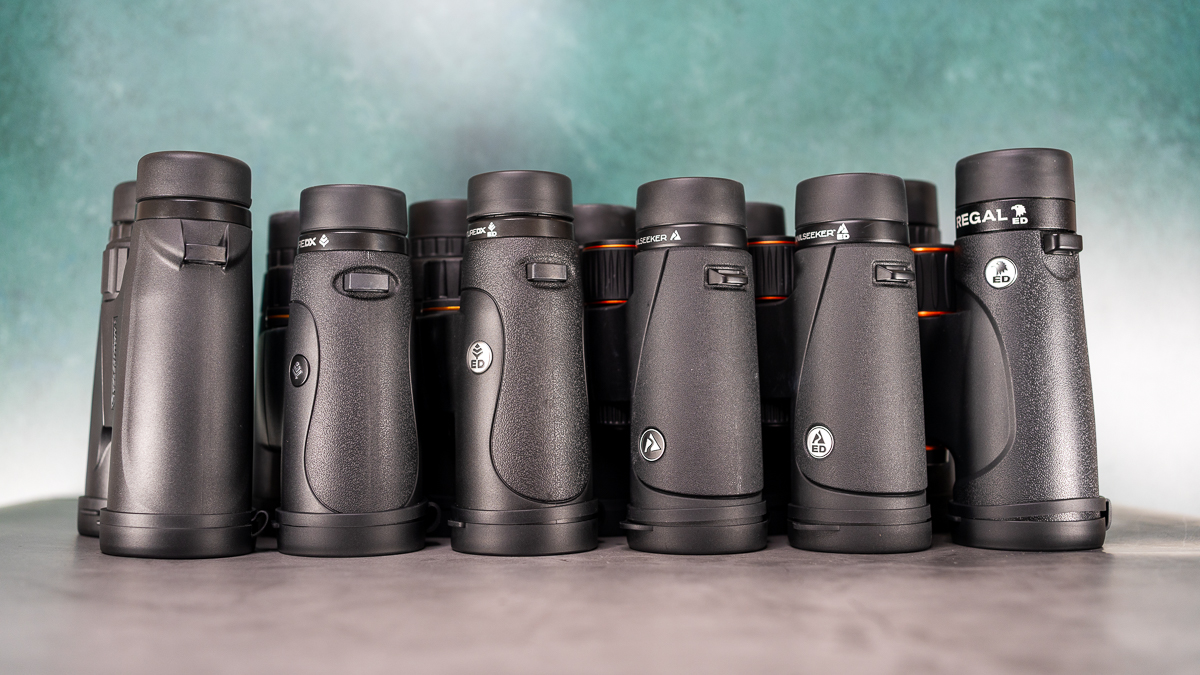Personality traits & personality types: What personality type are you?
What makes you, you? Psychologists sketch out personality traits using the "Big Five".

What personality traits makes someone who they are? Each person has an idea of their own personality type — if they are bubbly or reserved, sensitive or thick-skinned. Psychologists who try to tease out the science of who we are define personality as individual differences in the way people tend to think, feel and behave.
Measuring personality traits
You'll find many quizzes and tests online that claim to measure what personality type you have. Most of these are supported by very little evidence, and if you run across a system that claims to break all of humanity into just a handful of categories, it's safe to say it's probably oversimplified. Instead of trying to break people into "types," psychologists focus on personality traits. Each trait occurs along a spectrum and traits are independent of one another, making for an infinite constellation of human personality.
The traits with the strongest research backing them are the Big Five:
- Openness
- Conscientiousness
- Extraversion
- Agreeableness
- Neuroticism
Conveniently, you can remember these traits with the handy OCEAN mnemonic (or, if you prefer, CANOE works, too).
The Big Five were developed in the 1970s by two research teams. These teams were led by Paul Costa and Robert R. McCrae of the National Institutes of Health and Warren Norman and Lewis Goldberg of the University of Michigan at Ann Arbor and the University of Oregon, according to Scientific American.
How universal are the Big Five? The evidence suggest that these traits translate well across cultures. A 2005 study led by McCrae and published in the Journal of Personality and Social Psychology found that structure of the Big Five was similar across 50 countries, and a 2017 study published in the journal PLOS ONE found that among 22 countries, breakdowns of personality traits were quite similar. In fact, a person's nationality contributed only 2% to their personality. And a 2021 study of Mexican-origin adults "showed few associations with sociodemographic factors (sex, education level, and IQ) and cultural factors," according to the study abstract on the National Library of Medicine.
Still, there may be some cultures that don't conceive of human traits in the terms of the Big Five. For example, a 2013 study in the Journal of Personality and Social Psychology found that among the Tsimane tribe of forager-horticulturists in Bolivia, personality was conceived of along only two traits, prosociality and industriousness. This suggests that the Big Five personality traits could be a byproduct of living in a large, complex society, while people in small, traditional societies differ along other sets of traits. One possibility is that societies that offer more social niches for people allow more types of personality traits to arise, University of California Merced psychologist Paul Smaldino and UC Santa Barbara anthropologist Michael Gurven, have suggested in their 2019 study.
Get the world’s most fascinating discoveries delivered straight to your inbox.
If you live in a large, industrialized society, though, chances are the Big Five will do a pretty good job of summing you up. You might have a dash of openness, a lot of conscientiousness, an average amount of extraversion, plenty of agreeableness and almost no neuroticism at all. Or you might be highly conscientious, a bit introverted, disagreeable, neurotic and barely open. Here's what each trait entails.
Openness
Openness is shorthand for "openness to experience." People who are high in openness enjoy adventure. They're curious and appreciate art, imagination and new things. The motto of the open individual might be, "variety is the spice of life."
People low in openness are just the opposite: they prefer to stick to their habits, avoid new experiences and probably aren't the most adventurous eaters.
Openness might correlate with verbal intelligence and knowledge acquisition over the lifespan, according to a 2021 study in the American Psychological Association. People high in openness enjoy novelty and "predicted humor production ability above and beyond intelligence," the team wrote in their research.
In other words, they tend to be funnier than people who are just smart.
Conscientiousness
People who are conscientious are organized and have a strong sense of duty. They're dependable, disciplined and achievement-focused. You won't find conscientious types jetting off on round-the-world journeys without an itinerary; they're planners.
People low in conscientiousness are more spontaneous and freewheeling. At the extreme, they may tend toward carelessness. Conscientiousness is a helpful trait to have, as it has been linked to achievement in school and on the job, researchers reported in 2019 in a study published in the Proceedings of the National Academy of Sciences.
Extraversion
Extraversion versus introversion is possibly the most recognizable personality trait of the Big Five. The more of an extravert someone is, the more of a social butterfly they are. Extraverts are chatty, sociable and draw energy from crowds. They tend to be assertive and cheerful in their social interactions.
Introverts, on the other hand, need plenty of alone time. Introversion is often confused with shyness, but the two aren't the same. Shyness implies a fear of social interactions or an inability to function socially. Introverts can be perfectly charming at parties — they just prefer solo or small-group activities.
Agreeableness
Agreeableness measures the extent of a person's warmth and kindness. The more agreeable someone is, the more likely they are to be trusting, helpful and compassionate. Disagreeable people are cold and suspicious of others, and they're less likely to cooperate.
As you might imagine, agreeableness has its benefits. In a 25-year study published in Developmental Psychology in 2002, agreeable kids had fewer behavioral problems than kids low in agreeableness, and agreeable adults had less depression and greater job stability than adults who were low in agreeableness.
But being agreeable isn't always rewarded. A 2018 article in Harvard Business Review by Miriam Gensowski, an assistant professor at the Department of Economics of the University of Copenhagen, stated that, "more agreeable men, who tend to be friendly and helpful to others, have significantly lower earnings than less agreeable men. The man who is very agreeable (in the top 20%) will earn about $270,000 less over a lifetime than the average man."
A 2018 study published in Personnel Psychology suggested that disagreeable men may pitch in less at home, allowing them to devote more time and energy to their work and thus make more than agreeable guys.
Neuroticism
To understand neuroticism, look no further than George Costanza of the long-running sitcom "Seinfeld." George is famous for his neuroses, which the show blames on his dysfunctional parents. He worries about everything, obsesses over germs and disease and once quits a job because his anxiety over not having access to a private bathroom is too overwhelming.
People high in neuroticism worry frequently and easily slip into anxiety and depression. If all is going well, neurotic people tend to find things to worry about. A 2021 study found negative association with neuroticism and earnings. Although, even when neurotic people with good salaries earned raises, the extra income actually made them less happy. Because people high in neuroticism tend to experience a lot of negative emotion, neuroticism plays a role in the development of emotional disorders, according to a paper published in Clinical Psychological Science.
In contrast, people who are low in neuroticism tend to be emotionally stable and even-keeled.
Can personality change?
Personality was once thought to be very difficult to alter, but evidence is accumulating that personality can change in adulthood. In a 2011 study, people who took psilocybin, or hallucinogenic "magic mushrooms", became more open after the experience. More recently and in a paper published in the Journal of Psychopharmacology in 2017, the hallucinogen MDMA has been found to increase openness when used therapeutically, which could be helpful for treating post-traumatic stress.

And you don't necessarily have to go on a hallucinogenic trip to make real change. A study published in the January 2017 journal Psychological Bulletin synthesized 207 published research papers and found that personality may be altered through therapy, Live Science reported previously. "For the people who want to change their spouse tomorrow, which a lot of people want to do, I don't hold out much hope for them," said study researcher Brent Roberts, a social and personality psychologist at the University of Illinois. However, he continued, "if you're willing to focus on one aspect of yourself, and you're willing to go at it systematically, there's now increased optimism that you can affect change in that domain."
Because neuroticism is linked to mental health challenges, researchers have recently become interested in trying to reduce neuroticism through therapy. The hope of the study — published in the National Library of Medicine — is that targeting neuroticism will prevent the development of disorders like depression.
Personality also seems to change — slowly but naturally — over the course of a person's life. As people age, they become more extraverted, less neurotic, more agreeable and more conscientious, Live Science reported.
What personality type am I?
Though the Big Five are by far the most research-backed, scientifically based personality traits that have been identified, there are other schemas for measuring personality. These don't always tend to correlate with life outcomes the way the Big Five do, but people find them entertaining and sometimes helpful for thinking about their own attributes and goals. (Pro tip: If a system claims to describe your personality based on your zodiac sign, blood type or Hogwarts house, it's just for fun).
Among the most popular is the Myers-Briggs Type Indicator, which breaks people into 16 "types" based on how their level of introversion or extraversion, their information-gathering style (sensing for those who stick to the bare facts or intuition for those who prefer to find patterns), their decision-making preferences (thinking for those who like objectivity and fact or feeling for those who prefer to weigh personal concerns) and their tolerance of ambiguity in dealing with the outside world (judging for those who prefer to get things settled, perceiving for those open to new information).
You're likely to run into versions of the Myers-Briggs online or at work retreats – they're very popular in corporate America. But research on the Myers-Briggs has found that it's not very reliable (meaning people get different answers if they take the test several times) and that it's not particularly valid (meaning that people's answers don't match their real-world behavior or job outcomes very well), Live Science reported in 2019.
Another popular personality test is the Enneagram Type Indicator, which divides people into nine personality types with additional "wing" types that cover other traits that people might sometimes display. The Enneagram doesn't have much scientific theory behind it, though, and there's very little research showing that it's valid or reliable, according to Inverse.
Finally, you're likely to run across the 16Personalities test online. This test is based on Myers-Briggs but instead of identifying people by four-letter strings, it divides people into 16 social-media-friendly categories like "diplomats" and "explorers."
If you'd like to delve into personality inventories beyond the Big Five, you might have more luck with the HEXACO Personality Inventory, which aims to be more internationally relevant than the Big Five. In studies of personality, researchers found that outside the United States, a sixth trait kept popping up. This trait is along the honesty-humility spectrum. People who are high in honesty-humility are modest, fair and sincere; people who are low in the trait as boastful, greedy and pompous. The HEXACO inventory otherwise overlaps with the Big Five, measuring openness, conscientiousness, agreeableness, extraversion and emotionality (which is similar to neuroticism).
Another personality inventory based in scientific theory is the Hogan Personality Inventory, which draws from the Big Five but focuses on interpersonal interactions specifically. This inventory measures people on traits such as ambition, sociability, sensitivity and prudence.
Additional resources

Stephanie Pappas is a contributing writer for Live Science, covering topics ranging from geoscience to archaeology to the human brain and behavior. She was previously a senior writer for Live Science but is now a freelancer based in Denver, Colorado, and regularly contributes to Scientific American and The Monitor, the monthly magazine of the American Psychological Association. Stephanie received a bachelor's degree in psychology from the University of South Carolina and a graduate certificate in science communication from the University of California, Santa Cruz.



